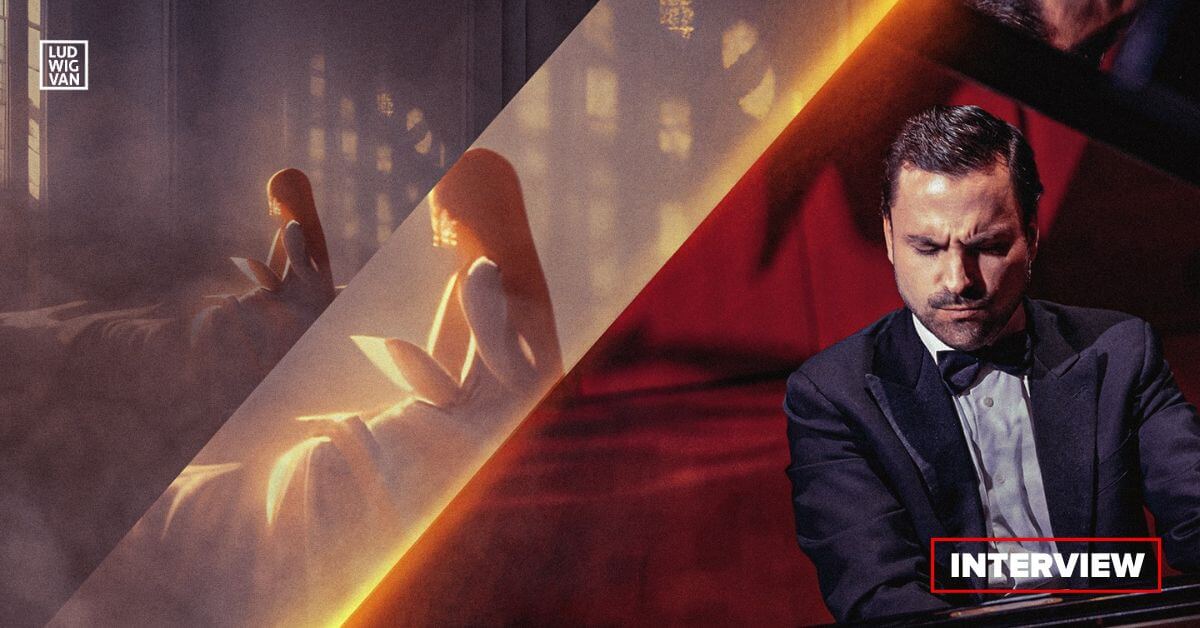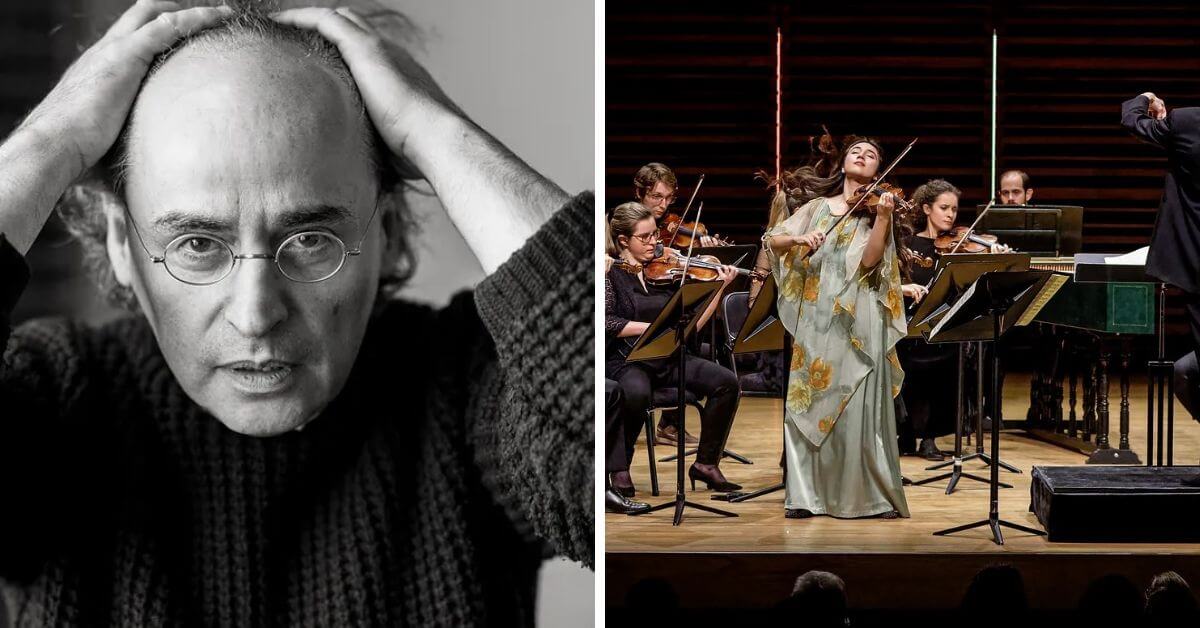
The world premiere tour of ARIELLA, an opera in concert, will hit Toronto’s Koerner Hall on October 22. The performances are being presented by GFN Productions and Ensemble Classico-Moderne, and will continue to Montréal and Québec City.
Along with excerpts from the opera in concert, pianist Jean-Philippe Sylvestre will perform Rachmaninoff’s Piano Concerto No. 2. The Ensemble Classico Moderne specializes in the fusion of contemporary and traditional Western classical music, with a goal of introducing audiences to new forms with familiar edges.
The Composer & The Story
ARIELLA is composed by Jaap Nico Hamburger, a CMC Associate and JUNO-nominated composer. Hamburger trained in the Netherlands, and graduated from the Royal Sweelinck Conservatorium of Music with a soloist degree in piano. While he began playing music at the age of three, it was not actually his first career. He was a practising cardiologist first before turning to music full-time.
He’s composed music for orchestra and chamber ensembles that has been performed in Canada, the Netherlands, and Israel. Since 2019, he’s been the Composer in Residence with Montréal’s Mécénat Musica, a unique donor-funded organization supporting artists and arts organizations. In 2021, the Dutch government and UN commissioned him to rework the piece Hymne des Nations, originally written in 1913 by Jewish-Dutch composer Charles Grelinger to mark the 75th anniversary of the International Court of Justice.
The opera is based on a story by Ariella Kornmehl, a popular author based in the Netherlands. The final version will blend elements of traditional opera with contemporary film and cinematography. The film will be provided by Dutch cinematographer Lucas van Woerkum, a French horn player who turned to filmmaking, with a specialty for dramas steeped in classical music.
Coloratura soprano Aline Kutan will perform the role of the Mother, with soprano Myriam Leblanc as Ariella, tenor Eric Laporte as the Father, and Enzo Sabbagha, (a former contestant on The Voice France), performs the role of the Brother.
We asked Jaap a few questions about the opera, which is being presented in concert form as a “pre-premiere”, and the concert programme.

The Q&A
What has drawn you to opera in particular — your background includes a range of different compositions?
It took me some time to collect the courage to write for the human voice. In ensemble, or orchestral writing, I always try to make instruments sound natural by staying well within the limits of their respective range. The human voice, and especially the combination of melody and text is yet on another level. There is nothing one can hide: it either makes sense and works, or it doesn’t.
What drew you to this project? Were you already familiar with the work of Ariella Kornmehl? The story poses some essential questions.
I read a novel by author Ariella Kornmehl and was immediately inspired by the drama of her story telling. I then started to reimagine her story in musical terms. Rather than a traditional opera, we came up with the idea of fully integrating cinematography with live music performance. When sketching out the story for the ARIELLA production, many more ideas for an original, new story were developed in collaboration with Kornmehl, our librettist Thomas Beijer, and film director Lucas van Woerkum, who all helped with writing the script for the story we now have: while Ariella struggles dramatically to overcome the grief of the accidental death of her mother, her younger brother suffers from depression and her lover suffers an accidental overdose with fentanyl. Ultimately, Ariella finds the courage to establish herself as an independent woman while, at the same time, having the strength to support the people around her.
Have you worked with Thomas Beijer before, and how did he come to write the libretto?
This is my second project with Thomas, as in addition to his libretto for ARIELLA, I also included one of his poems in a song cycle. Thomas Beijer is both a concert pianist, composer, and published novelist. Consequently, he has a very poetic and deep understanding of the use of language in a musical setting. This made his libretto a true pleasure to work with: by simply reading the words, I heard the music I subsequently composed for most of the arias. Vice versa, he understood the idiom of my music to the extent that it guided him in his poetry writing, such that it was easily compatible with my style of composing.
How would you describe your music in terms of style? I’m thinking of something like contemporary romanticism.
In principle, I wish my music to be a vehicle for communication with others. I therefore strive to have a specific (and coherent) story in mind when I compose, also if the music is purely instrumental. Originally, I was trained as a concert pianist, and never had formal training in composition. Thus, I do not necessarily adhere to a specific school or technique. Some of my music is tonal, some atonal, some of it is modal. I will use whatever technique it takes (and is available to me) in order to tell a story. Given the importance of storytelling, I think that most of my work has a strong melodic aspect.
What can audiences expect at the performance — which excerpts will you be presenting?
In collaboration with Maestro Francis Choinière, we chose to create a pre-première of ARIELLA in concert form: most (but not all) of the arias, and three instrumental/orchestral movements, that combined, present the highlights of the opera. It is a pre-première, as the actual world première will take place only once we have completed the shooting of the film that will be an integral part of the completed work.
How does the opera compare/contrast to the Rachmaninoff on the programme? (i.e. how did they come to be presented together?)
In light of the above, I think that both the lyricism, and the aspect of ‘story telling’ are both represented in ARIELLA and Rachmaninoff’s 2nd piano concerto. When listening to Rachmaninoff’s own recording of this work (in the 1940ies), one cannot escape the impression that Sergei is ‘telling’ a very specific story that immediately connects with his audience.
Tickets to the Toronto, Montréal and Québec City available [HERE].
#LUDWIGVAN
Get the daily arts news straight to your inbox.
Sign up for the Ludwig Van Toronto e-Blast! — local classical music and opera news straight to your inbox HERE.
- THE SCOOP | Applications For TO Live Explorations Initiative Open To June 28 2024 - May 17, 2024
- THE SCOOP | Canadian Pianist Jaeden Izik-Dzurko Named 1st Prize Winner Of The Concours musical international de Montréal - May 17, 2024
- PREVIEW | The Canadian Children’s Opera Company Remounts Dean Burry’s The Hobbit For Its 20th Anniversary - May 16, 2024



